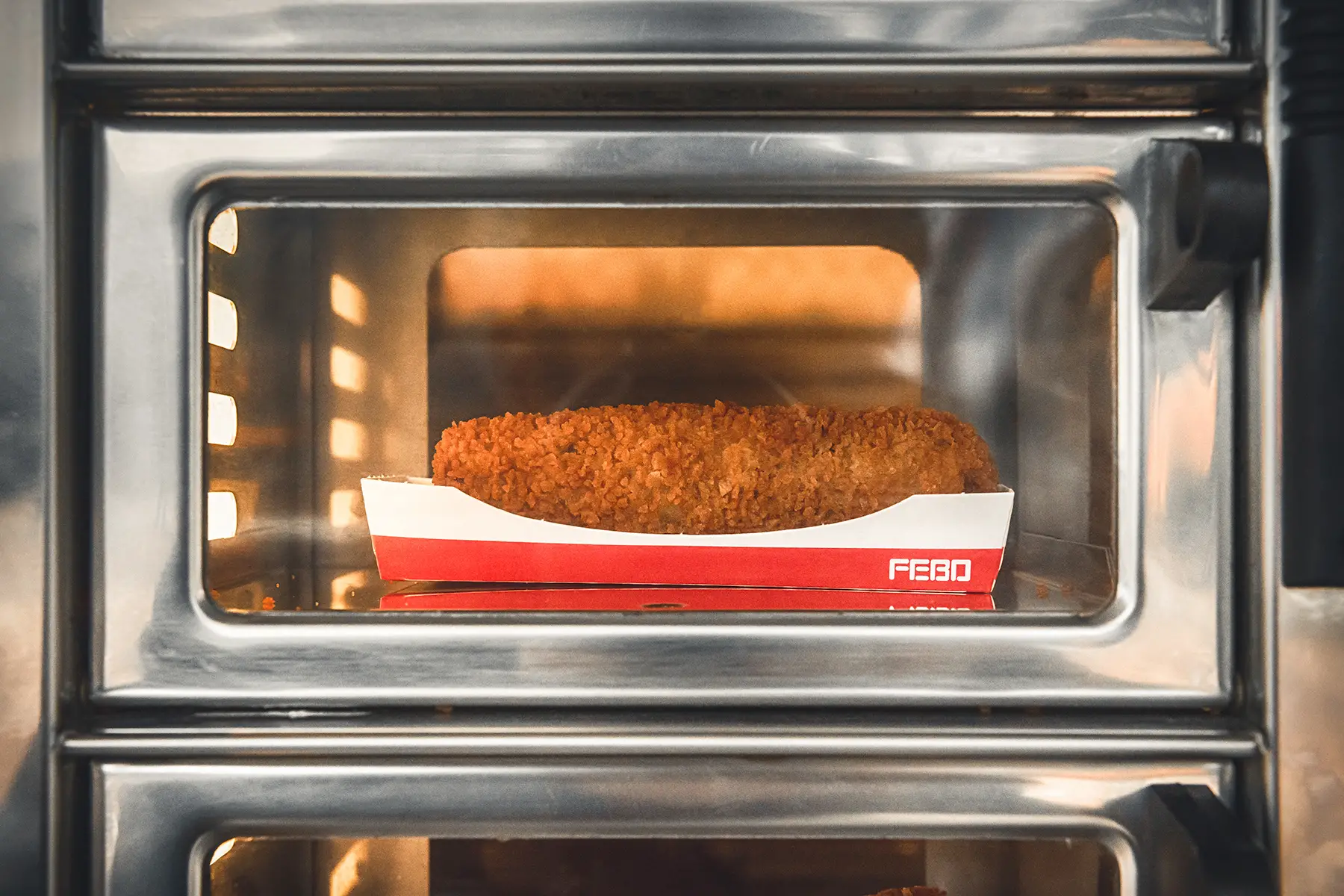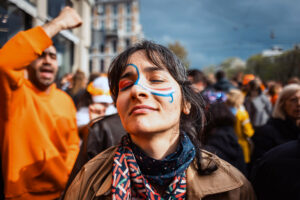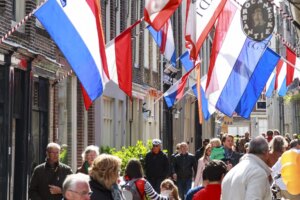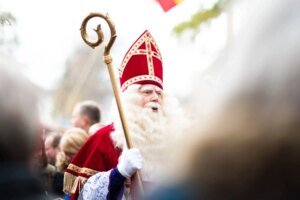Every year in early May, the Dutch mark two of their most meaningful national traditions. On 4 May, they hold their breath as one; on 5 May, they exhale in a burst of pure celebration. Welcome to Liberation Day in the Netherlands, where the solemn echoes of history give way to festivals, music, and the biggest celebration of the year.
Here’s what you need to know:
What is Remembrance Day in the Netherlands?
Every year on 4 May, the Netherlands comes together for Dodenherdenking (Remembrance Day), a national moment to honor all those who have lost their lives in wars and peacekeeping missions since the outbreak of World War II.
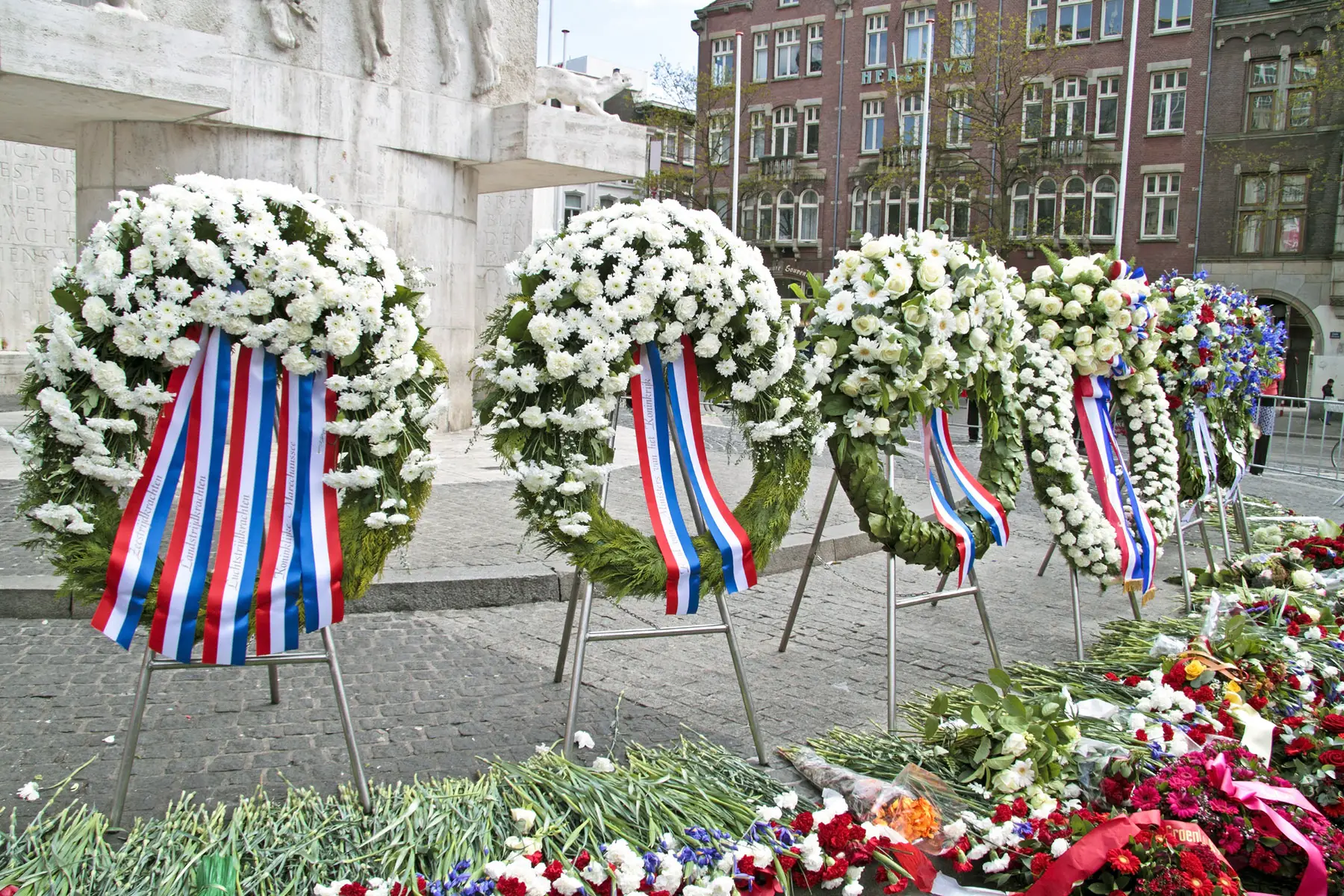
During the day, you’ll see Dutch flags flying at half-mast from homes, public buildings, and bridges. And at exactly 20:00, the country falls silent. Trams grind to a halt, televisions pause, and even the usually lively Dutch chatter disappears for two solemn minutes. Across the country, people gather in town squares, at war memorials, or simply stand still wherever they happen to be, observing the silence.
Remembrance Day remains an important and respected day in Dutch society. A 2024 survey found that 83% of the population finds it (very) important, and 84% take part in the two-minute silence (2024).
Remembrance Day in Amsterdam
Local commemorations take place in nearly every town and city throughout the Netherlands. However, the most prominent ceremony takes place at Amsterdam’s Dam Square, where members of the Dutch Royal family and government lay wreaths alongside veterans and citizens.
On the evening of 4 May, King Willem Alexander, Queen Maxima, and others of the royal family gather at De Nieuwe Kerk in Amsterdam. From there, they walk towards the National Monument on the Dam to lay the first memorial wreath. A trumpeter sounds the Taptoe signal before the nation falls silent for two minutes at 20:00. Afterward, there will be speeches and a young poet or writer will read what this day means for them (voordracht op de Dam).
Typically, crowds of more than 20,000 people gather to witness the ceremony, and it’s broadcast on national TV and radio as well. In 2024, visitors had to reserve a spot beforehand. However, in 2025, this crowd control measure was abolished.
What is Liberation Day in the Netherlands?
If Remembrance Day is about reflection, Liberation Day (Bevrijdingsdag, held each year on 5 May) is pure celebration. The mood across the Netherlands shifts almost overnight, as the country commemorates the end of Nazi occupation in 1945 and the return of freedom.

Where the evening before brought silence and contemplation, Liberation Day bursts onto the scene with open-air festivals, concerts, and lively street gatherings. Cities large and small host Bevrijdingsfestivals, with music and activities for all ages.
In Amsterdam, Utrecht, Rotterdam, and The Hague, you’ll find famous Dutch artists performing alongside local talent, while food stalls tempt with everything from poffertjes to Indonesian satay.
For expats, Liberation Day is the perfect moment to experience Dutch joie de vivre. There’s no need to be shy; everyone is welcome at the festivities, and you’ll find locals eager to explain the meaning behind the celebrations (and likely teach you a traditional song or two).
The Liberation Day Flame
One of the most symbolic traditions on Liberation Day is the journey of the Bevrijdingsvuur (Liberation Day Flame). Each year in the early hours of 5 May, a torch is lit in the city of Wageningen, in Gelderland. This is a place of special significance because that’s where German forces officially surrendered in 1945, marking the end of World War II in the Netherlands.
From Wageningen, teams of runners – 1,300 in total – set off before dawn, carrying the flame to 200 different towns and cities all over the country. The relay transforms the torch into a symbolic beacon of freedom, connecting communities large and small. Local ceremonies often mark the moment with music, speeches, and the lighting of a public fire or beacon. In some cities, they’ll also have invited an elderly soldier to represent and honor the Allied forces.
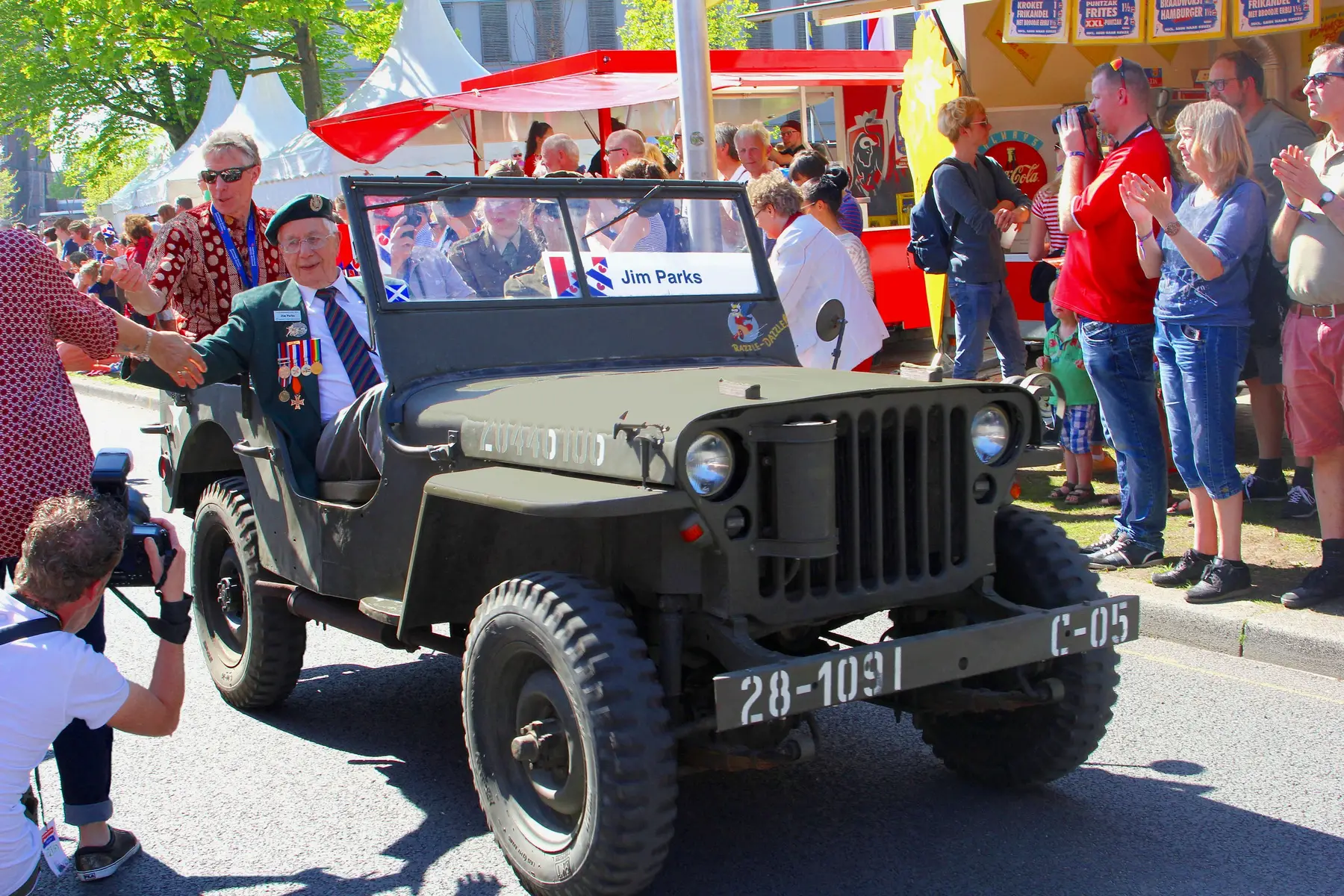
If you’re an expat, joining a flame arrival ceremony can be a moving and memorable way to take part in Liberation Day. Many cities publish their torch relay schedules in advance, so you can check when and where the flame will arrive in your area.
Liberation Festivals
You may not enjoy the solemn spectacle of Remembrance Day or Liberation Day in the Netherlands. But you’ll definitely enjoy the Liberation Day festivals (Bevrijdingsfestivals).
These lively open-air concerts are (maybe) the ultimate 5 May celebrations, transforming city squares, parks, and waterfronts into vibrant get-togethers with music, conversation, and community. From Groningen to Maastricht, you’ll find a mix of free concerts featuring some of the biggest names in Dutch music alongside up-and-coming local artists. And, of course, you’ll find food trucks, creative workshops, and children’s activities to celebrate freedom in the Netherlands.
The atmosphere is inclusive and welcoming, with people of all ages joining in. Whether you dance in the crowd, sample new foods, or simply soak up the festive vibe, you’ll quickly see why Bevrijdingsdag is – after King’s Day – the biggest highlight of the Dutch calendar.
Check your city’s website for a full lineup of events.
Tips for celebrating Liberation Day in the Netherlands
Whether you’re new to the Netherlands or have already recycled your orange outfit more than twice, Liberation Day is the best way to experience the Dutch in their natural habitat.
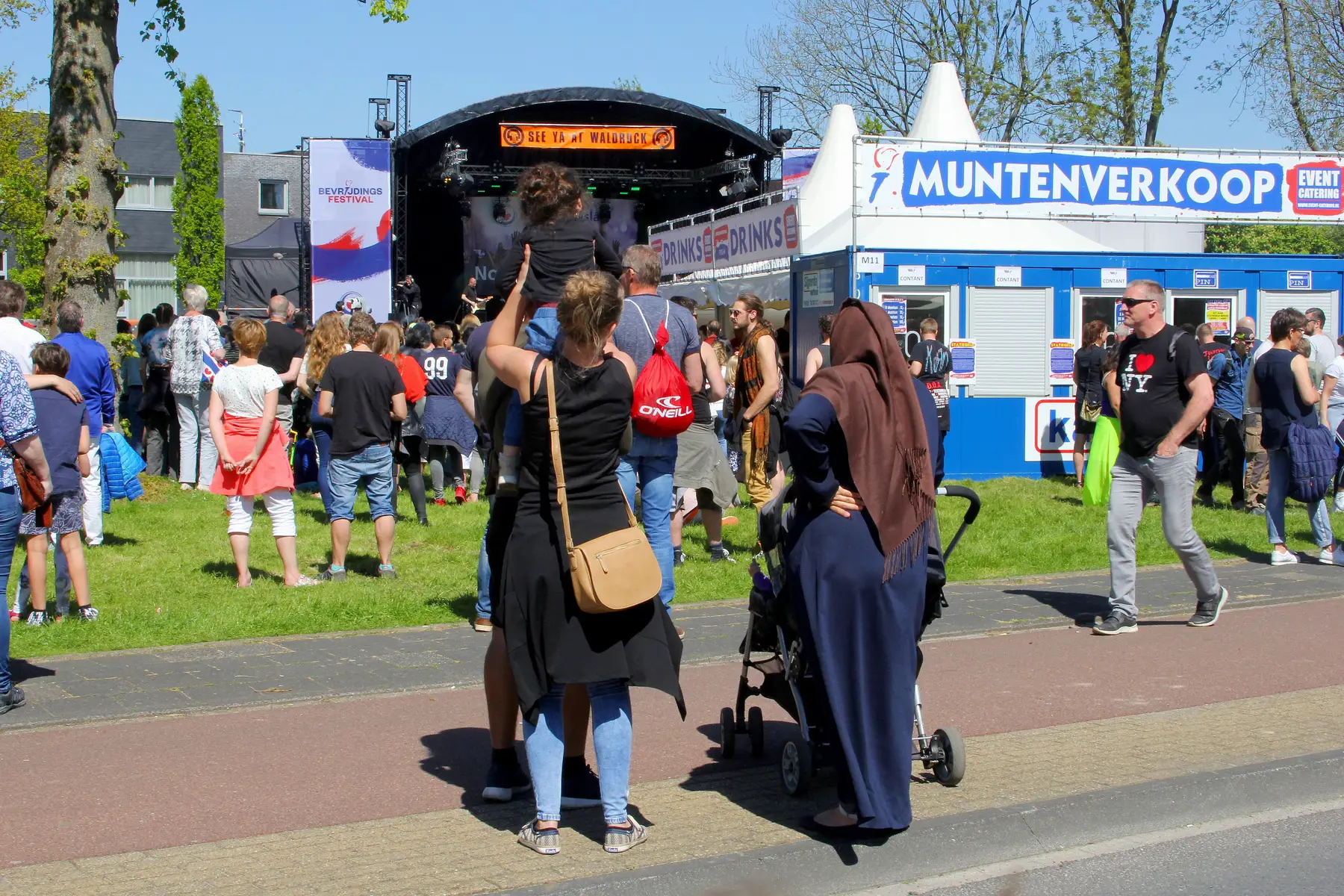
Here are some easy ways to join the festivities and soak up the atmosphere like a local:
- Find the nearest festival – Liberation Day festivals are held all across the country, from concerts to parades and open-air activities. These events are free and family-friendly, just bring your curiosity and perhaps a raincoat (this is the Netherlands, after all!).
- Enjoy the food – Street food stalls and pop-up markets appear throughout the day, offering everything from classic Dutch treats (e.g., bitterballen) to international flavors. Don’t hesitate to try something new, and if you’re invited to join a picnic in the park, say yes!
- Keep an eye out for the Freedom Flame – Make sure to join the Freedom Flame relay! It’s a moving reminder of what Liberation Day means in the Netherlands, and always draws a crowd.
- Ask around to join whatever is happening – Liberation Day is about freedom and community. If you’re not sure what’s happening, just ask a neighbor or colleague; they’ll likely be happy to invite you along to join the fun.
- Join in, even from home – If crowds aren’t your thing, you can still join the celebration. Order a Liberation Day pin and show your support.
Useful resources
- National Committee 4 and 5 May – official website of Remembrance Day and Liberation Day committee in the Netherlands
- Amsterdam 4 and 5 May – official website of official website of Remembrance Day and Liberation Day in Amsterdam
- Rotterdam 4 and 5 May – official website of official website of Remembrance Day and Liberation Day in Rotterdam
- Utrecht 4 and 5 May – official website of official website of Remembrance Day and Liberation Day in Utrecht
- The Hague 4 and 5 May – official website of official website of Remembrance Day and Liberation Day in The Hague


